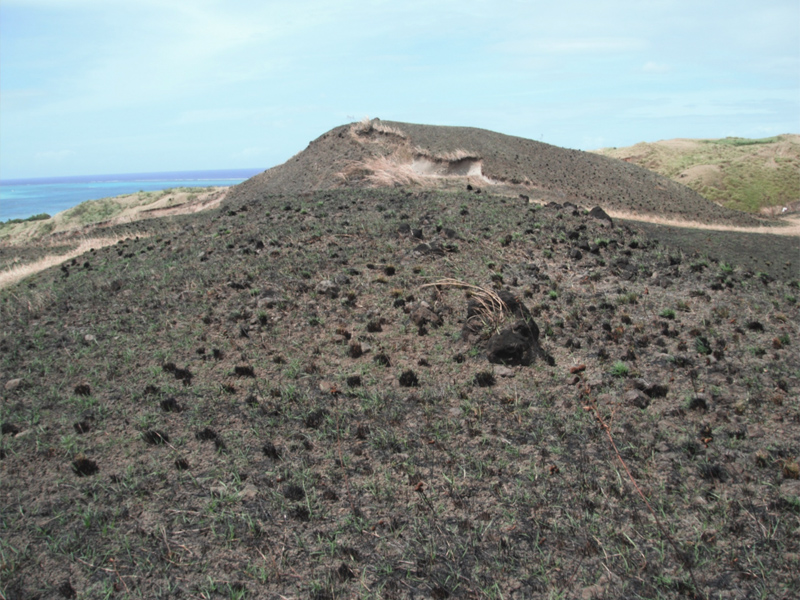Biochar as a mitigation tool for soil rehabilitation in Guam’s badlands and savannah grasslands

The Manell-Geus watersheds are located in southern Guam and are adjacent to important nearshore marine habitats, including seagrass beds, mangroves, and coral reef ecosystems. The watershed terrestrial environment consists primarily of hilly, savannah grassland and interspersed ravine forests. Badlands, areas of saprolite, have developed throughout the savannah landscape and are responsible for contributing large amounts of sediments into waterways and coastal waters. Badlands are created by a variety of activities: wildfires, heavy precipitation events, and vehicular off-roading. These un-vegetated areas, which already account for extreme sediment loss, may increase in the future as Guam experiences the potential effects of climate change, such as dryer and hotter dry-seasons and more severe precipitation events.
To mitigate these ongoing erosion issues we have designed a project to test the effects of biochar on the growth and survival rates of outplanted vegetation by introducing biochar as a soil amendment. Biochar is a charcoal produced from plant matter and is utilized in a variety of soil mitigation practices. Charcoal has been shown to have no equal in its soil purification and water retention capabilities. Biochar has also been shown to improve water quality, reduce soil emissions of greenhouse gases, reduce nutrient leaching and soil acidity, and even reduce irrigation and fertilizer requirements. Studies in both nursery and field trials have shown that biochar-treated soils yield healthier plants, so we expect similar results in our experiment. We anticipate that the biochar treated vegetation will yield plants with lower mortality rates as well as wider and taller stems.
PROJECT DETAILS
FUNDED:
FY2020
PI:
Mohammad Golabi
Professor of Soil Science, University of Guam
Graduate Scholar:
Patrick Keeler
Sustainable Agriculture, Food and Natural Resources, University of Guam

